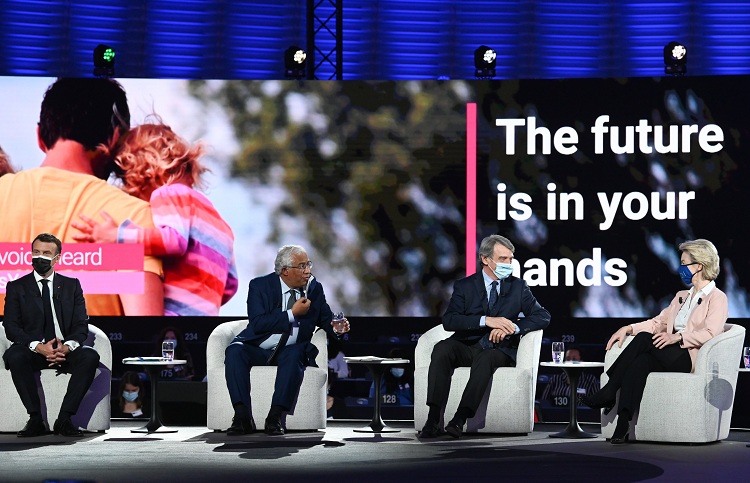The Diplomat
The European Union launched the Conference on the Future of Europe (CoFoE) yesterday at an event at the European Parliament on Europe Day, which aims to bring citizens closer to the decision-making process in the EU’s decision-making club.
The event, which took place at the European Parliament in Strasbourg, was attended by French President Emmanuel Macron, who was the main driving force behind the conference, and the presidents of the European institutions: David Sassoli (European Parliament), Ursula Von der Leyen (European Commission) and Portugal’s António Costa (rotating president of the EU). Members of the executive committee and citizens of the EU-27 also took part in a celebration with lots of music, culminating in a rendition of Beethoven’s Ode to Joy by Spanish singer Miguel Ríos, performed by a number of Spanish artists.
The last initiative of this kind, the Convention on the Future of Europe, was held in 2002, although it was not open to public participation. Now, for several weeks, Europeans have been able, through a multilingual digital platform, to interact and organise events and debates on proposals to improve the European Union in the future.
This platform is one of the most important tools of the Conference and already has more than 7,000 participants, a total of 395 events and 2,712 comments across the 27 member countries.
For example, on Wednesday 12 June, Madrid will host a debate on the European Green Pact and on 2 June, the ‘Environment Days 2021’ will be held in Barcelona, which also includes a participatory process so that all citizens can explain what the priorities are from the point of view of the fight against climate change.
The conference will be co-chaired by the European Parliament, the European Commission and the rotating Presidency of the Council, currently held by Portugal. There will be a plenary that will meet at least every six months and will be composed of representatives of the European Parliament, the Council and the European Commission, as well as representatives of all national parliaments.
The Committee of the Regions and the Economic and Social Committee will also each send 18 representatives, including eight from the social partners and civil society. The EU’s High Representative for Foreign Policy, Josep Borrell, will be able to participate when the EU’s international role is discussed.
The aim is for the conclusions to be published in 2002, although at the Council’s request they will not lead to a change in the Treaties.







